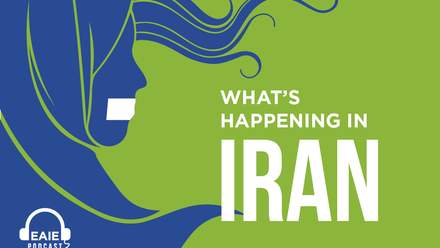How universities are supporting immigrant integration in Finland

Like many countries in Europe, Finland received a record number of asylum seekers in 2015 due to the war and subsequent humanitarian crisis in Syria. In a country with a population of a mere 5.5 million, the influx of nearly 33,000 migrants was received with mixed reactions.
Higher education institutions first reacted by providing humanitarian aid and Finnish language courses for immigrants housed in reception centres in various parts of the country. However, the results of the asylum interviews carried out at the reception centres soon revealed that there was a significant number of people with either partially or fully completed higher education degrees who were eager and anxious to find their way back into academia upon arriving to Finland. Simple survival Finnish courses would not do for long.
Supporting Immigrants in Higher Education in Finland
Higher education institutions in Finland have a long history of recruiting international students and staff, but seemed somehow unprepared to facilitate the integration of these newly-arrived migrants. Many of them had had to leave their homes without certificates of their degrees or documentation of their previous studies, so creating pathways to Finnish institutions was not easy.
Realising the situation, the Ministry of Education and Culture decided to make a significant investment in a pilot project with one university and one university of applied sciences, University of Jyväskylä and Metropolia University of Applied Sciences. The project was soon named ‘Supporting Immigrants in Higher Education in Finland’ or SIMHE. The focus of SIMHE was to develop tailored guidance and counselling services and recognition of prior learning for immigrants who had completed a higher education degree or were qualified for higher education studies.
The pilot was initially started as a response to the international refugee crisis, and its services were targeted to newly-arrived asylum seekers, but soon it grew to include services for refugees and migrants of other backgrounds as well. The SIMHE institutions set up regional, national and international networks to support their work and paved the way for several future initiatives to support the integration of immigrants in higher education in Finland. Today the network of SIMHE institutions consists of three universities (Jyväskylä, Helsinki and Turku) and three universities of applied sciences (Metropolia in Helsinki, Karelia in Joensuu and OAMK in Oulu), all receiving strategic funding from the ministry, with the eventual goal of further widening the network to include all HEIs in Finland.
Integrating immigrants via INTEGRA
During the first years of setting up the SIMHE network in Finland, the universities of applied sciences were quick to develop effective pathway programmes for immigrants with different backgrounds in higher education, but the research universities seemed to lag behind. At the same time, many highly educated professionals were faced with the fact that, in order to receive full recognition of their foreign higher education studies or professional qualifications in Finland, they needed to complete additional studies. There were of course pathway programmes especially for regulated professions such as physicians and teachers, but all of these required advanced Finnish language skills. What was missing was a programme that would integrate language studies into content studies, and include civic and working life skills in the mix. To respond to this need, an educational model named INTEGRA was developed at the Centre for Multilingual Academic Communication at the University of Jyväkylä.
The ultimate goal is to create a permanent education model that can be applied in all higher education institutions in Finland
INTEGRA grew into a ministry-funded project focused on developing an educational model integrating university-level language and content studies. This model is used with immigrants who have completed or are qualified for higher education, and who aim to finish their interrupted degree studies or complement a prior degree in compliance with the Finnish qualification requirements. INTEGRA also seeks to promote immigrants’ integration into society, as well as the development of multilingual competence and university pedagogy. It is the first educational programme of its kind in Finnish research universities, and the ultimate goal is to create a permanent education model that can be applied in all higher education institutions in Finland.
More support, better integration
The INTEGRA model includes 30 ECTS credits of language, civic and working life skills studies, 5–10 ECTS credits of studies in the student’s own discipline and 5 ECTS credits of individual study plan drafting. Each participant’s prior education, educational needs and plans, as well as Finnish and English language skills, are all mapped in the study plan. Guidance and support play a key role in the INTEGRA programme, and this is where the two projects meet: making use of the guidance and counselling expertise of the SIMHE services, students are recruited for the INTEGRA programme. Their competences and study goals are identified to create individual study plans, including support for finding work placements and making further study and career plans.
Even though SIMHE and INTEGRA were initially born in the aftermath of and as responses to the international humanitarian crisis of 2015, they both also shed light on an issue that had long been ignored in Finland, an issue that is still regrettably typical in many European countries. The burning questions of integrating immigrants into higher education do not just concern the newly-arrived immigrants but people who had arrived to the country years ago but had never had the opportunity to access higher education, no matter what their educational backgrounds were. Through SIMHE and INTEGRA, these people have found new life and career paths and finally have the opportunity to reach their full potential – potential that Finland or Europe cannot afford to lose.






